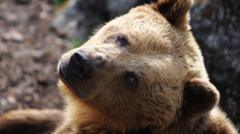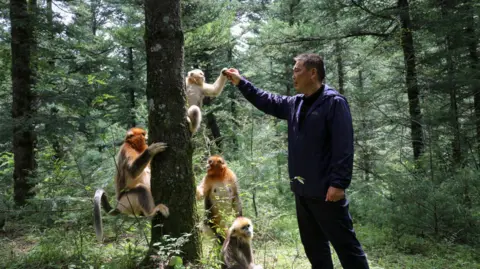In a contentious decision, Slovakia's populist government has set forth plans to allow the sale of brown bear meat to the public following the approval to cull approximately 350 of the country's estimated 1,300 brown bears. The decision, which seeks to address an increase in dangerous human-bear interactions, has drawn ire from environmentalists and political opposition, especially as the brown bear is classified as a "near threatened" species by the World Conservation Union.
As the situation unfolded, the Slovak cabinet publicized its intention to authorize the shooting of bears, citing a rise in fatal incidents involving humans. This month, the government announced that bear meat, which would otherwise be disposed of, could now be served to the public. State Minister Filip Kuffa justifies this decision by stating, "We will release every shot animal that meets certain conditions for consumption. Why? Because bear meat is edible."
Slovakia has a growing problem with bear attacks, having recorded 54 incidents from 2000 to 2020, with a tragic heightening in recent years. In response to a fatal mauling of a man earlier this year, Prime Minister Robert Fico asserted the need for drastic measures, stating, "We can't live in a country where people are afraid to go into the woods." The government attributes the increasing number of bear attacks to overpopulation, however, critics argue that the focus should instead be directed toward preventive measures.
Opponents of the culling initiative raise concerns over conservation laws and scientific advice being disregarded. Michal Wiezik, an ecologist and MEP from the opposition party Progressive Slovakia, criticized the government's approach as "absurd," highlighting that many encounters between bears and humans occur without issue. Greenpeace Slovakia's Miroslava Abelova voiced strong opposition, calling the plan "completely reckless."
In the EU, brown bears are granted protection under specific directives, allowing killing only in exceptional circumstances concerning public safety when no alternatives exist. While bear meat may be considered a delicacy in certain Eastern European regions and parts of the Nordic countries, it remains rare elsewhere in Europe due to stringent hunting regulations. Additionally, health organizations have cautioned against consuming bear meat due to the risk of Trichinella parasites, necessitating thorough testing before sale.
Amid these developments, the conversation surrounding responsible coexistence with wildlife continues, raising an important dialogue about how societies balance human safety with environmental stewardship.


















